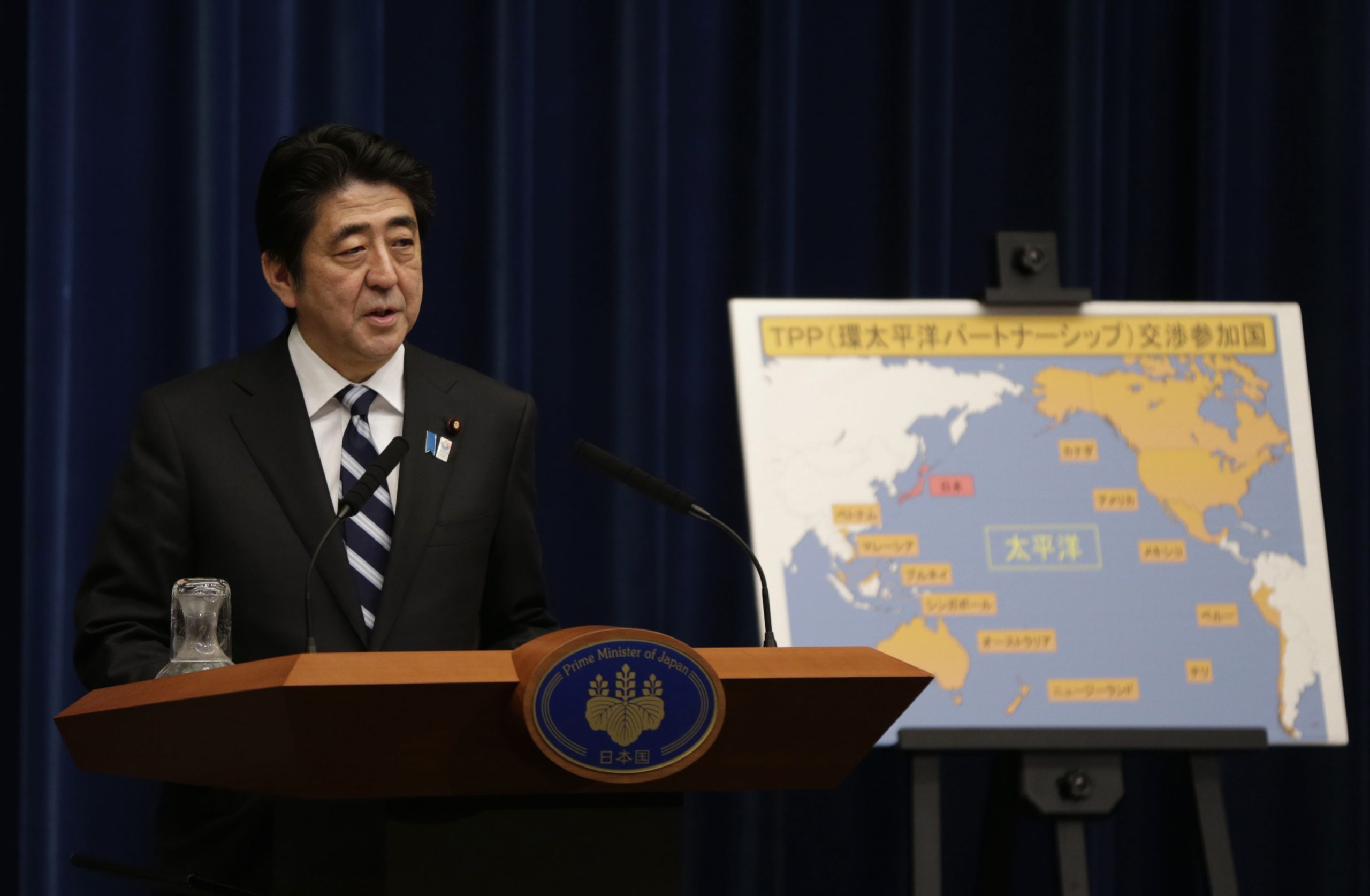
IT’S ALIVE!
TPP 11 attempt to resuscitate trade deal that Trump tried to kill

The chief negotiators of the 11 remaining Trans-Pacific Partnership countries will meet in Japan today to discuss the pact’s future.
In January, the US pulled out of the regional trade deal which was signed in 2016, withdrawing 60% of the combined GDP of the original TPP states and casting uncertainty over its future. Now, members of the “TPP 11” are trying to revive the deal under Japanese leadership.
The TPP still faces enormous hurdles. Vietnam and Malaysia signed it to widen access to the lucrative US market for their cheap textile goods, making them reluctant to sign a deal without the US. Additionally, the rules of the original agreement make it impossible to finalise without US ratification, meaning the implementation framework would have to be re-written.
When the US pulled out of the deal, many feared that China would dominate the economic rules of the region through its Regional Comprehensive Economic Partnership. However, the push to revive the TPP suggests that regional powers like Japan and Australia are working to rival Chinese economic influence even without US leadership.
BRIDGING THE GULF GULF
Tillerson holds talks in Kuwait to resolve Qatar crisis

Yesterday, US Secretary of State Rex Tillerson arrived in Kuwait to discuss the Gulf Crisis with Kuwait’s Emir, who has been mediating the spat between Qatar and Saudi Arabia, Bahrain, Egypt, and the UAE.
The Secretary of State’s visit comes days after the Saudi-led bloc vowed to escalate month-old old crisis with all “political, economic and legal measures” required to bring Qatar to heel, which could include boycotting businesses that trade with Qatar or suddenly pulling deposits from Qatari banks.
Tillerson’s task is made difficult by apparent divisions in the administration. The State Department has called for dialogue and called Saudi actions “mystifying,” while President Trump has repeatedly sided with the anti-Qatar coalition.
Mr Tillerson will spend the week mediating between crucial allies; Bahrain is home to the US Fifth Fleet, while Qatar hosts 11,000 US military personnel at the al-Udeid air base, and all involved countries are part of the anti-ISIS coalition.
Tillerson hopes to repair the anti-Iran and anti-terrorist coalition the US assembled at the Riyadh Summit in May. If he fails, the biggest victor will be Iran, the very country that Saudi Arabia had hoped to counter with its blockade.
CELEBRATING WORLD POPULATION DAY
Family planning in focus

World Population Day, which was established by the United Nations Development Programme in 1989, takes place today. The day raises awareness of negative effects of population increase and encourages nations to address them. This year’s theme is family planning, which includes safe contraception and female education.
Despite annual growth rates having declined since 1969, the world’s population is expected to reach 9.7 billion people by 2050. Sub-Saharan African nations are set to be a major part of this increase. As infant mortality in these nations decreases, many women still lack resources to effectuate family-level population control.
To curb this, the 2012 London Family Planning Summit set a goal to give 120 million women access to appropriate resources by 2020. Only 25% of that goal has been reached. Cultural barriers, such as many Sub-Saharan Africans viewing contraception as immoral, further complicate the issue.
This year’s Family Planning Summit consequently aims to address both structural and cultural factors hindering progress.
HAPPENING ELSEWHERE…
Japanese PM Shinzo Abe was meant to be in Estonia today to discuss cybersecurity—a subject the Baltic state takes extremely seriously after a 2007 attack crippled the country. But Abe has cut short his tour of Europe to deal with a crisis at home. Opinion polls show support for the Japanese leader have plummeted to 36%, the lowest since he came to power in 2012. Amazingly, the prime minister sported a 61% approval rating just two months ago. Mr Abe has been dogged by claims he and his wife showed favouritism to associates and is expected to announce a cabinet reshuffle next month.
NASA’s Juno spacecraft is expected to fly over Jupiter’s Great Red Spot, a giant storm system that’s rumoured to be 350 years old and possibly even older. The probe, which has been orbiting Jupiter for a year, will provide the first ever close up of the Spot. Due to the 590 million kilometres separating Earth from Jupiter, the images aren’t expected to reach NASA until the weekend at the earliest.
Theresa May will attempt to reenergise her premiership in a parliamentary address. The PM is expected to acknowledge that last month’s disastrous election results have weakened her hand but will reiterate her “commitment to change” and seek the “broadest possible consensus” on Brexit. Much of the text of the speech has been leaked and can be read here.
Paraguay’s president will visit Taiwan to mark 60 years of sustained relations between the two. Paraguay is one of just 20 countries—most of which are Pacific island-nations—that formally recognise Taiwan, also known as the Republic of China, as the ‘one China’. On June 13, Panama became the latest country to officially recognise the People’s Republic as the ‘one China’. Despite this, many countries, including the United States, maintain unofficial diplomatic ties with Taiwan, which irks Beijing.

